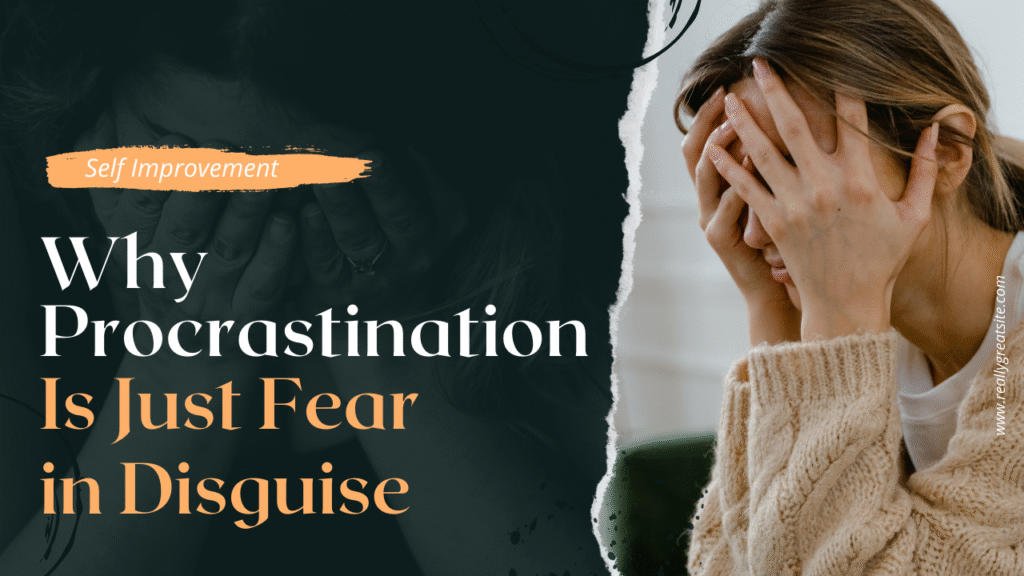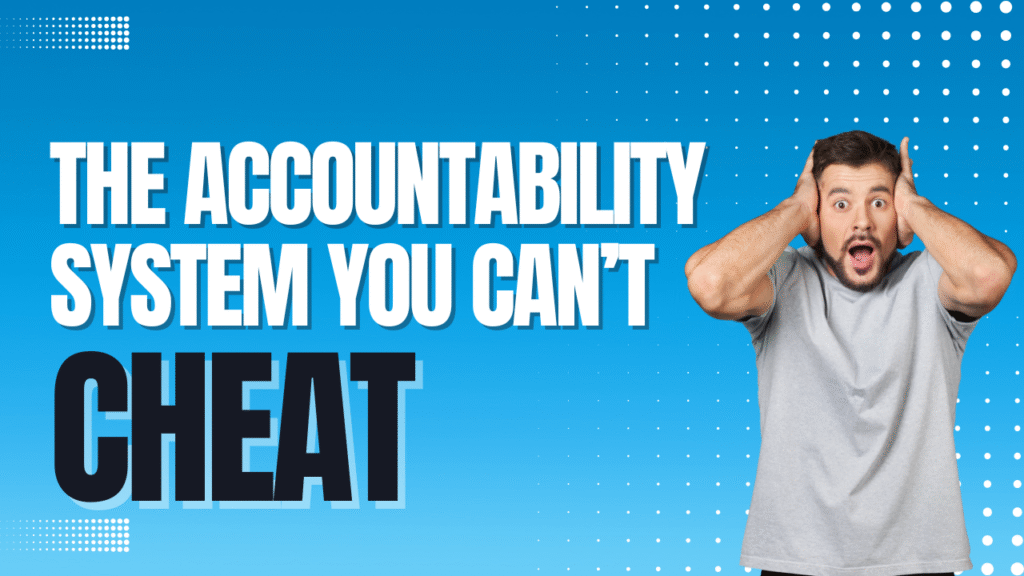You know that moment when you tell yourself, I’ll do it later?
And it feels harmless. Maybe even smart — you’re “waiting for the right moment.” The coffee isn’t hot enough. The lighting isn’t right. You need to “think about it more.” But if we’re being brutally honest here, a lot of the time you’re not waiting. You’re hiding.
Fear doesn’t always slam into you like a car crash. Most days, it sneaks in wearing comfy flannel bottoms and a t-shirt that says “I’ll get to it.” That’s procrastination — not laziness, not bad time management, but a very well-dressed version of fear.
Fear Is a Master of Costumes
Fear knows that if it showed up in its purest form — the sweaty palms, the pounding chest, the loud voice in your head yelling Run! — you’d spot it immediately. And maybe fight it. But fear’s not stupid. It’s subtle.
So it puts on costumes. Perfectionism. Over-planning. Endless “research.” That sudden urge to clean out your spice rack instead of answering that email. And you feel productive while doing it, which is the worst part. You think you’re winning. But you’re just decorating the edges of the thing you’re avoiding.
The Science-y Part (Without the Boring Lecture)
When you procrastinate, your brain isn’t saying, “Let’s organize the desk instead of calling that client because it’s a better use of time.” No. Your amygdala — the part that freaks out over threats — is running the show. To it, a high-stakes conversation, big project, or new idea equals danger. So it shoves you toward something safe, something that won’t risk embarrassment, failure, or rejection.
That’s why you can suddenly spend two hours “optimizing” your calendar and feel a weird mix of busy and empty at the same time. Your brain just gave you the chemical hit of relief without the risk of doing the scary thing.
Fear Loves to Pretend It’s Logic
Here’s the kicker: fear rarely says, “Don’t do it, I’m afraid.” It says, “Wait until you’re more prepared.” Or “This isn’t the right time.” Or my personal favorite, “You need to think it through more.”
It’s convincing because those statements sound responsible. Who can argue with wanting to be prepared? But “more prepared” quickly becomes “never started.” And “the right time” becomes “sometime after the apocalypse.”
The Tiny Tests You’re Avoiding
Think about the last thing you kept putting off. Was it finishing your portfolio? Applying for that job? Having a difficult conversation? Fear wasn’t telling you, “You can’t do it.” It was whispering, “What if you mess up?” Or, “What if they say no?”
The tragedy? You were already failing by not trying. Fear convinces you the safest place is inaction, but that’s the one place nothing changes.
You Don’t Beat Fear By Waiting for Courage
If you’re waiting to feel ready, you’ll wait forever. Courage isn’t a mood; it’s a behavior. It shows up after you act, not before. That’s why the tiniest step — even a half-hearted, messy one — is more powerful than waiting for a lightning bolt of confidence.
Start writing the email and let it be bad. Make the phone call and trip over your words. Apply for the job even if your résumé isn’t perfect. Each small move tells your brain, “See? We didn’t die.” That’s how fear starts losing its grip.
The Two-Minute Rule (The Good Kind, Not the Lazy Kind)
There’s a trick I’ve used with clients for years: if something scares you enough to make you stall, shrink it down to something you can do in under two minutes. Want to write a book? Don’t aim to write a chapter — just open the document and write a single paragraph.
This isn’t lowering the bar to let yourself off the hook. It’s giving fear less to work with. You can’t talk yourself out of two minutes. And more often than not, once you start, momentum quietly joins the party.
Perfectionism Is Just Fear with Better PR
Let’s get this out of the way: your standards aren’t as noble as you think when they’re keeping you from starting. Perfectionism is fear wearing a suit instead of pajamas, but it’s still the same face underneath.
You tell yourself, I just want it to be right, but the truth? You don’t want it to be judged. You can’t perfect something that doesn’t exist, so your brain keeps you in the “planning” phase forever. It’s safer there — but it’s also where dreams go to die of boredom.
Call Your Fear Out Loud
Sounds ridiculous, but it works. When you hear yourself say, “I’m scared this presentation will bomb,” it does two things:
- It forces you to stop pretending it’s about not having enough time.
- It takes away some of fear’s power — because you’re treating it like a thing, not a fog you can’t see through.
Once you name it, you can deal with it directly. You can ask, “Okay, what’s the smallest thing I can do to move forward anyway?”
Here’s the Hard Truth
Procrastination isn’t your personality. It’s not some permanent flaw baked into your DNA. It’s fear — quiet, clever fear — tricking you into believing the stall is safety.
And yes, fear has a point: the thing you’re avoiding could sting. But it could also change your life. And either way, you’re strong enough to take it.
So maybe today, just as an experiment, don’t wait until you feel ready. Start while you’re still scared. Let the fear wear its pajamas. Just don’t let it pick the schedule.



